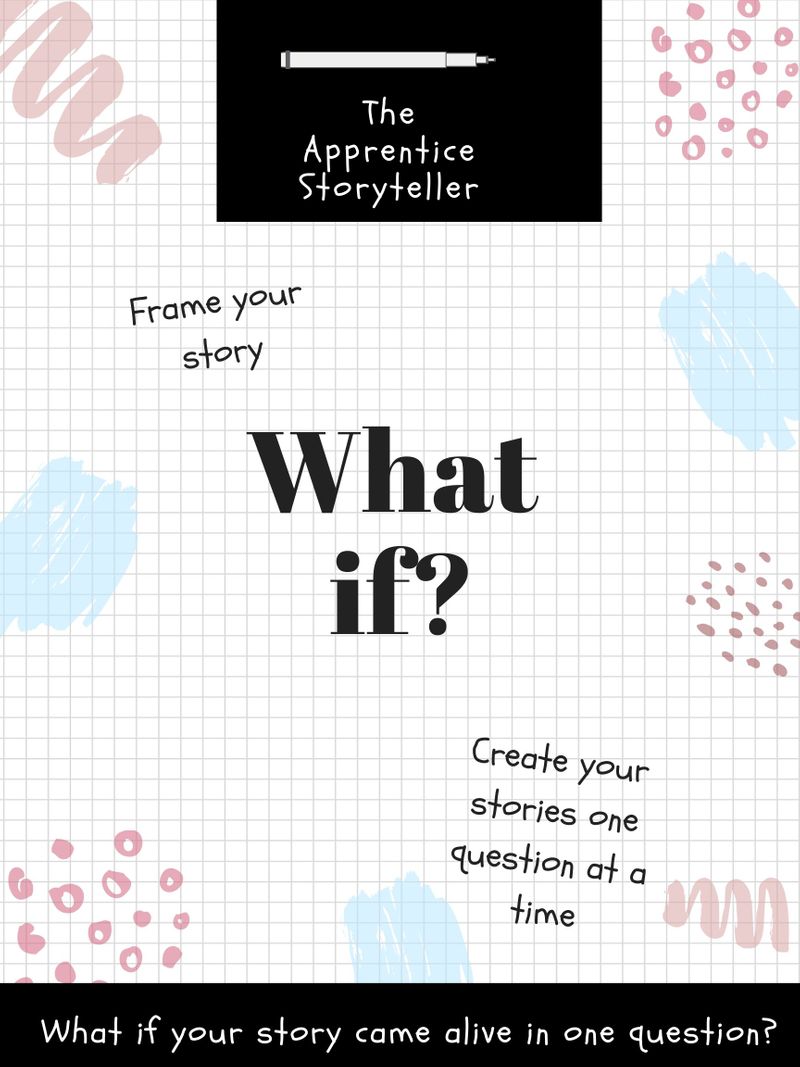Stories are powerful. That's why they're everywhere: on paper, online, in movies, and in songs.
You have a lot to say and you want to create your own story.
But how do you start the process? How do you avoid facing a blank page? How do you take the first step?

Framing your story
One effective way to generate ideas is the use of "what if" questions, or prompts. They help you frame your story.
Start with "what if"
the main character
a major personality flaw
a challenge
a resolution
Frame your story
Example:
What if ... an orphan wizard, uncertain of his potential, hones his skills as a wizard to defeat a mortal enemy. - Harry Potter
Quiz
What is Harry's flaw?
Structure
"What if" questions need a simple structure to be effective.
Start with: What if...
Add the protagonist: ... a young lion...
Add a major flaw: ... who thinks himself responsible for his father's death ...
Add a challenge: ... flees into exile where he acquires valuable perspective...
Add a resolution: ... before returning to take his place as the rightful king.
Application
The Lion King
What if a young lion who thinks himself responsible for his father's death, flees into exile where he acquires valuable perspective, before returning to take his place as the rightful king.
The story is about the way the protagonist changes.
Quiz
What is the story of The Lion King?
Take Action
Now that you know how to write a "what if" prompt, your challenge is to decide what kind of story you want to tell. Whether you write fiction or non fiction, you will need the basic elements covered in this byte.
What if you, an apprentice storyteller, made a list of your initial ideas and transformed them into compelling "what if" questions to create an original story?

Your feedback matters to us.
This Byte helped me better understand the topic.
